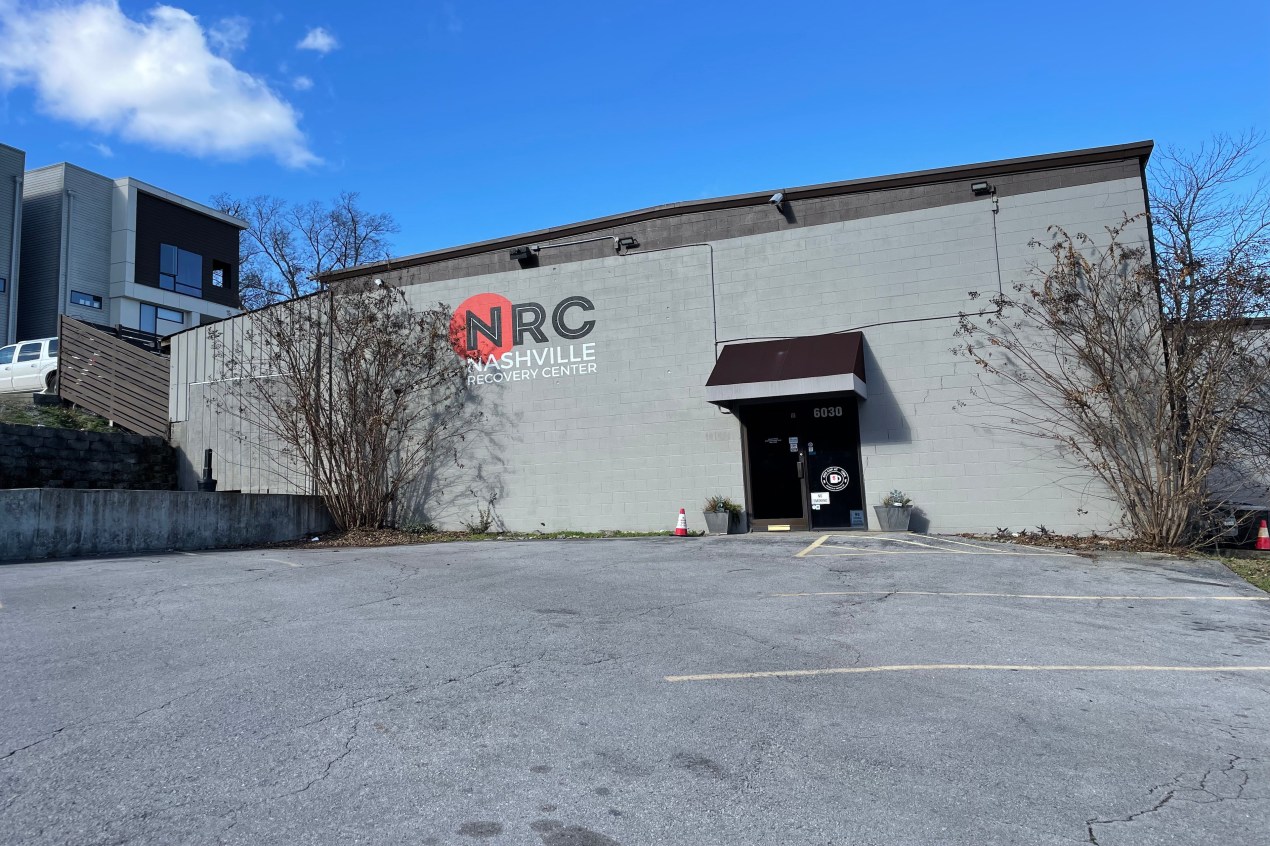Life-Changing Support: Why Choose Our Addiction Treatment Center
Life-Changing Support: Why Choose Our Addiction Treatment Center
Blog Article
Navigating the Journey of Detoxing in the Comprehensive Addiction Treatment Program
Starting the path of cleansing within the structure of a detailed addiction treatment program is an essential stage in the journey in the direction of healing. The procedure of cleansing holds a significant duty in breaking the physical dependence on materials and preparing the individual for the subsequent phases of treatment. Navigating through detoxification is not simply a matter of physical cleaning; it entails an intricate interaction of emotional, emotional, and social variables that call for cautious consideration and assistance. As individuals come to grips with the difficulties of withdrawal symptoms and the unpredictabilities that exist ahead, having a structured plan and a durable support system in area becomes vital. In this conversation, we will discover the diverse aspects of cleansing within the thorough addiction treatment program and clarified the important elements that shape this transformative journey in the direction of healing.
Relevance of Cleansing in Recuperation

Cleansing sets the foundation for the remainder of the dependency treatment program by preparing the individual for additional treatment and counseling. By cleansing the body important that have been clouding judgment and influencing habits, detoxification makes it possible for patients to approach their healing with a more clear mind and more powerful emphasis.
Furthermore, detoxification helps in taking care of the potentially severe withdrawal symptoms that might emerge when medicine or alcohol use is quit. Clinical professionals very closely keep track of clients throughout detoxification to guarantee their safety and supply needed support. Via this procedure, people can begin their journey towards sobriety with a supported physical and psychological state, raising the possibility of an effective recovery.
Understanding the Detoxification Refine
Detoxing, a fundamental component of dependency therapy programs, includes an organized process targeted at safely removing harmful substances from the body to facilitate a successful healing trip. The detox process commonly starts with an examination to analyze the person's substance use history, physical wellness, and mental health. This examination helps healthcare specialists determine one of the most proper detoxification plan tailored to the person's demands.
During detox, the body undergoes withdrawal as it adapts to the lack of the material. Withdrawal symptoms vary relying on the sort of compound utilized, the duration of usage, and specific factors. Medical supervision throughout detoxification is critical to handle withdrawal signs and symptoms and ensure the person's safety and comfort.

Handling Withdrawal Symptoms

Medications might be utilized to relieve details withdrawal signs and minimize pain. Medications like methadone or buprenorphine can assist handle opioid withdrawal symptoms, while benzodiazepines might be made use of for alcohol withdrawal. It is necessary for healthcare providers to very carefully keep track of the person's reaction to these medicines to ensure their safety and performance.
Along with pharmacological treatments, helpful treatments such as therapy, peer support teams, and alternative techniques like mindfulness meditation or yoga exercise can help individuals handle the psychological and psychological difficulties of withdrawal. By resolving withdrawal signs and symptoms comprehensively, doctor can boost the detoxification experience and assistance people on their journey to recovery.

Assistance Systems Throughout Detox
Support systems play a critical role in offering social and psychological help to individuals undertaking cleansing in dependency therapy programs. During the detox procedure, individuals frequently experience a variety of emotional and physical withdrawal signs and symptoms, making this stage tough - Addiction Treatment Center. Having a solid assistance his explanation system in position can considerably affect the individual's ability to browse via detox effectively
Relative, buddies, support system, and health care experts are essential elements of the assistance system. Household good friends and participants can provide encouragement, understanding, and a sense of belonging throughout this tough time. Support teams supply a platform for individuals to connect with others that are experiencing similar experiences, supplying a feeling of area and shared understanding. Health care professionals, consisting of medical professionals, counselors, and therapists, More Help play a crucial function in checking the individual's development, providing medical support, and using assistance throughout the detox process.
Looking Ahead: Life After Detox
Having successfully finished the cleansing stage, individuals in dependency treatment programs now concentrate on preparing for the difficulties and possibilities that lie ahead in their trip towards recovery. Life after detoxification notes an important change period where individuals should continue to build on the progress made throughout detox to maintain their soberness. It is crucial for people to recognize that the journey in the direction of recuperation is continuous and needs dedication, dedication, and a desire to accept change.
One trick element of life after detoxification is the advancement of coping devices to handle triggers and desires that might occur. This may include learning new abilities, such as mindfulness methods, cognitive-behavioral techniques, and stress and anxiety management strategies, to browse difficult situations without considering compound usage. Furthermore, people are motivated to actively participate in recurring therapy, assistance groups, and aftercare programs to strengthen their assistance network and obtain support as they browse the intricacies of life post-detox.
Conclusion
Finally, detoxing is an important component of the thorough addiction therapy program. Recognizing the detox procedure and managing withdrawal signs and symptoms are necessary steps in the direction of healing. Support group play a considerable function throughout this challenging trip. Addiction Treatment Center. Looking in advance, life after detoxification holds pledge for a healthier, substance-free future. It is very important to recognize the value of detox in the procedure of getting rid of addiction and moving towards a life of soberness.
Clinical supervision during detoxification is critical to manage withdrawal signs and make certain the individual's security and convenience.
By recognizing the detox process and its value in damaging the cycle of dependency, people can embark on a path towards lasting healing.
Throughout the detoxification procedure, individuals frequently experience a variety of physical and emotional withdrawal symptoms, making this phase difficult. Health care experts, including doctors, counselors, and therapists, play a critical duty in checking the person's progression, giving clinical assistance, and supplying advice throughout the detoxification procedure.
Life after detoxification marks an important shift period where individuals have to proceed to develop on the development made during detox to keep their soberness.
Report this page